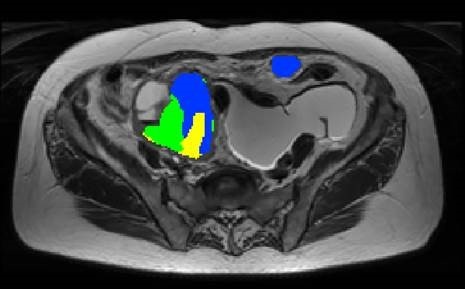The UK National Cancer Imaging Translational Accelerator (NCITA) establishes infrastructure for validation and adoption of cancer imaging biomarkers as decision-making tools in clinical trials and NHS practice.
Researchers and medical experts from nine world-leading medical imaging centres across the UK come together to form an integrated infrastructure for standardising and validating cancer imaging biomarkers for clinical use.
The centres include University of Glasgow, University College London, University of Manchester, University of Oxford, King’s College London, The Institute of Cancer Research, London, and The Royal Marsden NHS Foundation Trust, Imperial College London, Cambridge University and Newcastle University. This unique UK infrastructure provides clinical researchers across the UK with open access to world-class clinical imaging facilities and expertise, as well a repository data management service, artificial intelligence (AI) tools and ongoing training opportunities.
The NCITA consortium, through engagement with NHS Trusts, pharmaceutical companies, medical imaging and nuclear medicine companies as well as funding bodies and patient groups, aims to develop a robust and sustainable imaging biomarker certification process, to revolutionise the speed and accuracy of cancer diagnosis, tumour classification and patient response to treatment.
The NCITA initiative is funded by Cancer Research UK and will receive up to £10 million over 5 years.
The NCITA network is led by Prof Shonit Punwani, Prof James O’Connor, Prof Eric Aboagye, Prof Geoff Higgins, Prof Evis Sala, Prof Dow Mu Koh, Prof Tony Ng, Prof Hing Leung and Prof Ruth Plummer with up to 49 co-investigators supporting the NCITA initiative. NCITA is keen to expand and bring in new academic and industrial partnerships as it develops.
See the following links to the NCITA news releases published by our host institutions and collaborators:
CRUK City of London Cancer Centre
Department of Oncology, University of Oxford
Medical Sciences Division, University of Oxford
Oxford University Hospitals NHS Foundation Trust
The Institute of Cancer Research, London
Royal Marsden NHS Foundation Trust
School of Clinical Medicine, University of Cambridge
Department of Radiology, University of Cambridge
Manchester Cancer Research Centre
NIHR Biomedical Research Centre at The Royal Marsden and the ICR


